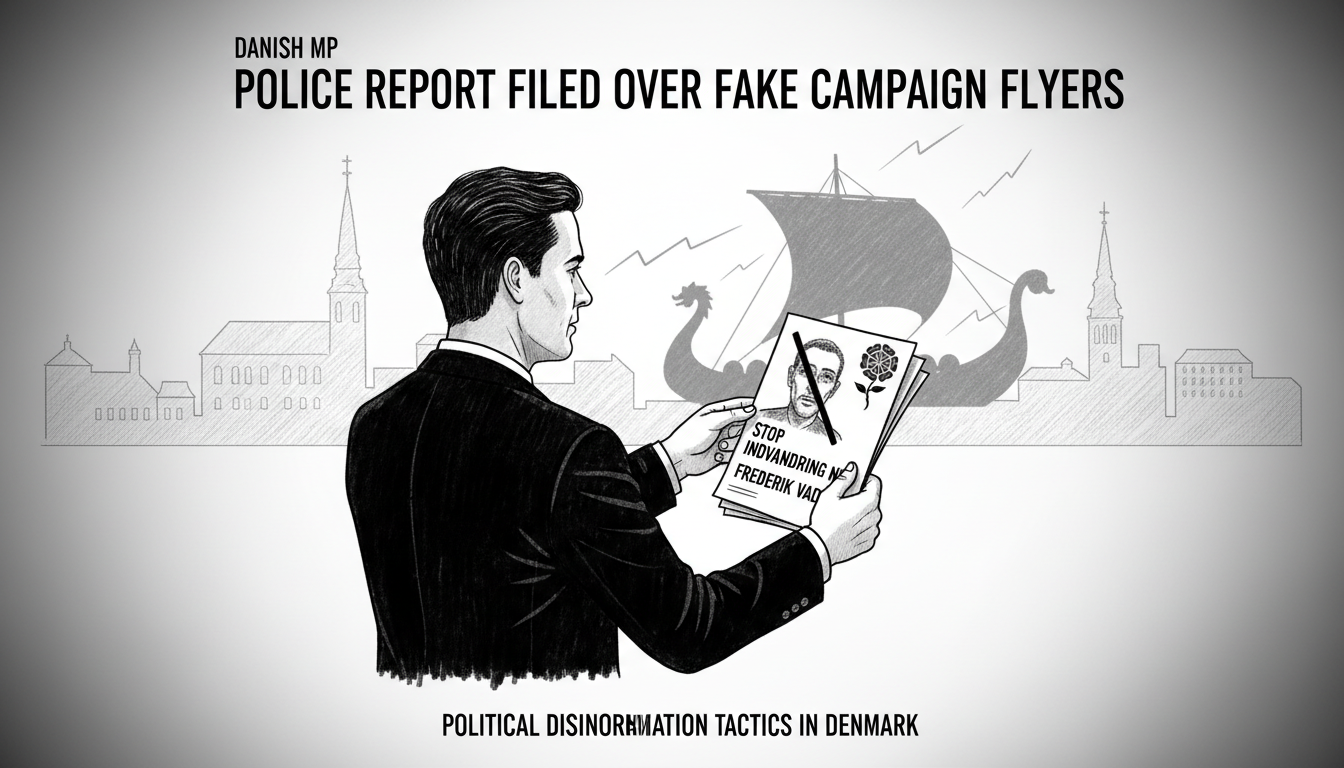Danish Social Democratic integration spokesperson Frederik Vad has filed a police complaint after fake campaign materials featuring his image appeared across Copenhagen. The incident occurred when individuals distributed flyers mimicking official party materials.
Vad told reporters he believes he has been subjected to identity theft and defamation. He explained the situation on social media platform X, detailing how volunteers in red Social Democratic jackets handed out candy and campaign materials in classic election style. The problem, he noted, was that these were not actual party members.
The fake flyers displayed Vad's photograph alongside the Social Democratic party logo. They contained the message 'Go home! Denmark has Europe's most generous repatriation scheme.' The back of the materials revealed they originated from Generation Identitær, a group associated with the far-right movement.
Generation Identitær confirmed their involvement through their website. They stated all quotes on the flyers represented Vad's and his party's actual statements. The group also noted their identification appeared at the bottom of the materials.
Vad expressed frustration about the deception. 'They wore red jackets and distributed roses and candy,' he said. 'You would need to look very carefully to see this wasn't my material.' He described feeling a 'massive loss of control' after receiving emails and texts from people who genuinely believed Social Democrats were behind the campaign.
The politician also raised copyright concerns since the materials used his party's name and official logo without authorization. This incident highlights growing concerns about political disinformation tactics in Denmark.
Danish election laws strictly regulate campaign materials and require clear attribution. Using party logos without permission typically violates both copyright law and election regulations. The case raises questions about how political parties can protect their branding from misuse by extremist groups.
Similar incidents have occurred in other Nordic countries recently. Sweden saw comparable fake campaign materials during its last election cycle. Norway has also dealt with unauthorized use of political imagery by fringe groups.
International observers note that Denmark's reputation for fair elections makes such deceptive tactics particularly concerning. The country consistently ranks high in global democracy indexes for electoral integrity and transparency.
Police now must determine whether the incident constitutes illegal impersonation or merely falls under protected political speech. Danish defamation laws carry potential penalties including fines or imprisonment for serious cases.
The timing raises questions about potential motivations behind the fake campaign. Denmark faces several important policy debates about immigration and integration. Some analysts suggest the incident may represent an attempt to influence public perception ahead of future political discussions.
Vad's position as integration spokesperson makes him a natural target for such tactics. His party has advocated for both strong integration policies and controlled immigration. The fake flyers appear designed to misrepresent his actual stance on these issues.
This case demonstrates how digital tools have made political impersonation easier than ever. Creating convincing fake materials requires minimal technical skill today. Parties across the political spectrum now face new challenges in protecting their public image.
The incident also shows how extremist groups increasingly adopt mainstream campaign tactics. By using professional-looking materials and traditional outreach methods, they can create confusion among ordinary voters.
Danish authorities have not indicated how long their investigation might take. Similar cases in other countries have sometimes taken months to resolve. The outcome could set important precedents for handling political impersonation in the digital age.

